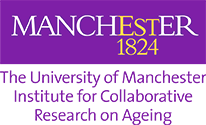New £2 million trial to prevent tooth decay in older adults
21 June 2017
A team led by University of Manchester researchers Martin Tickle, Anne Marie Glenny, Tanya Walsh, Helen Worthington, Iain Pretty, Jan Clarkson, Steve Birch and Tom Goodwin have been successful in securing in a £2 million grant from the Health Technology Assessment funding stream of the National Institute for Health Research. The trial will evaluate the costs and benefits of prescription-only high concentration fluoride toothpaste in preventing tooth decay in older adults.
The UK has an ageing population. The number of people over State Pension Age is projected to increase from 12.4 million in mid-2014, to 16.5 million by mid-2039. The proportion of older people who retain their natural teeth is also growing rapidly. In England in 2009, 6% of the adult population had lost all of their teeth, compared to 28% in 1978. Older adults tend to have extensively filled teeth and as a result have a greater risk of developing tooth decay. As the physical and cognitive abilities of older individuals deteriorate their risk of developing decay increases, resulting in a growing population health problem and financial burden for the NHS, so prevention is important.
National guidance recommends prescription of high concentration fluoride toothpaste to in older adults at risk of developing tooth decay. However the evidence for this guidance is weak; despite the lack of evidence the number and costs of prescriptions is rising rapidly, in England in 2016 fluoride toothpaste prescriptions cost the NHS £20 million, and the costs have been rising at a rate of £2 million a year.
The trial will be delivered in some 60 dental practices in Greater Manchester, Scotland and Northern Ireland in collaboration with colleagues from Dundee and Aberdeen Universities and the Northern Ireland Health Board. It will seek to recruit more than 1000 patients over 50 years old and follow them up for 3 years. The trial will inform national policy by determining if the investment in prevention results in fewer fillings and extractions for patients. Recruitment of practices and patients will start in January 2018.
